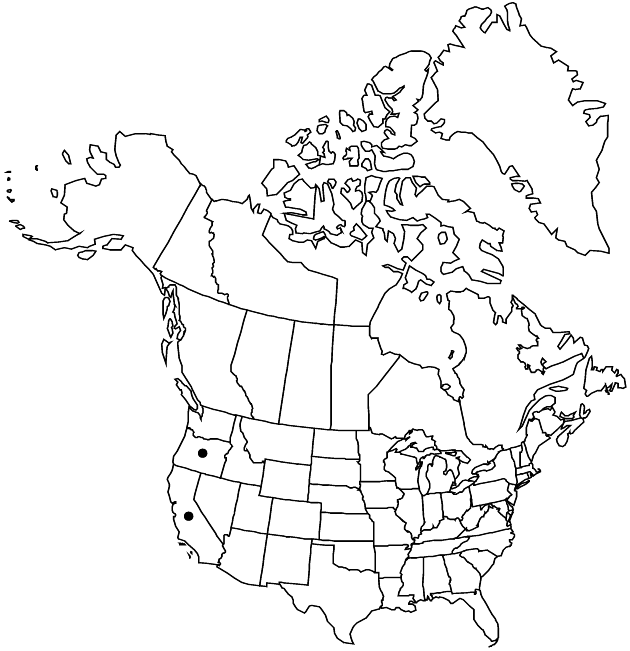Difference between revisions of "Hesperevax sparsiflora var. brevifolia"
Syst. Bot. 17: 302. 1992.
Common names: Seaside or short-leaved evax
Basionym: Evax caulescens var. brevifolia A. Gray in A. Gray et al., Syn. Fl. N. Amer. 1(2): 229. 1884
Synonyms: Evax sparsiflora var. brevifolia (A. Gray) Jepson
FNA>Volume Importer |
FNA>Volume Importer |
||
| Line 57: | Line 57: | ||
|publication year=1992 | |publication year=1992 | ||
|special status= | |special status= | ||
| − | |source xml=https://jpend@bitbucket.org/aafc-mbb/fna-data-curation.git/src/ | + | |source xml=https://jpend@bitbucket.org/aafc-mbb/fna-data-curation.git/src/f50eec43f223ca0e34566be0b046453a0960e173/coarse_grained_fna_xml/V19-20-21/V19_782.xml |
|tribe=Asteraceae tribe Gnaphalieae | |tribe=Asteraceae tribe Gnaphalieae | ||
|genus=Hesperevax | |genus=Hesperevax | ||
Revision as of 20:20, 16 December 2019
Plants ± greenish, mostly 3–9 cm. Leaves cauline, largest 6–12(–14) × 3–5(–6) mm; blades ± round, ± densely lanuginose. Heads: longest 3–3.7 mm. Pistillate paleae 2.5–3.7 mm. Cypselae mostly 1–1.7 mm.
Phenology: Flowering and fruiting late Mar–early Jul.
Habitat: Sandy, grassy or wooded coastal bluffs, terraces, dunes
Elevation: 0–300 m
Discussion
Variety brevifolia occurs in a coastal band from the San Francisco Bay area to southwestern Oregon. It is of potential conservation concern in both states. See discussion under Hesperevax acaulis var. robustior.
Selected References
None.
Lower Taxa
None.
